
Democracy in pink
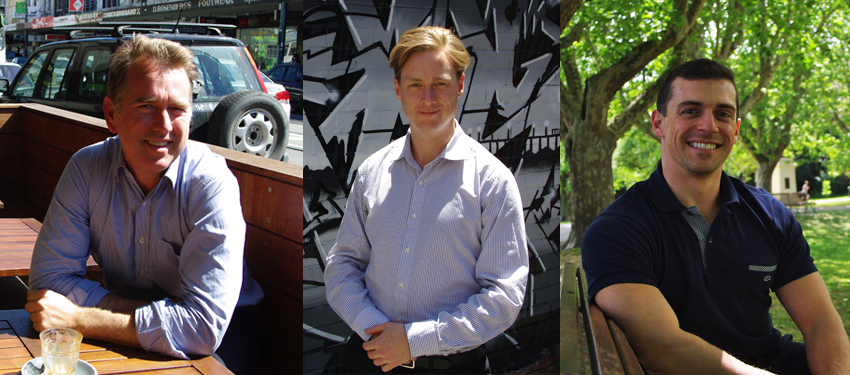
AT a forum on LGBTI issues a few weeks before the 2014 Victorian state election, two of the candidates for the marginal electorate of Prahran are in a heated argument over the state’s anti-discrimination laws.
The Liberal government has copped a lot of flak for rolling back protections for LGBTI people under the Equal Opportunities Act 2010 early in the current term of parliament, and while the Labor opposition has promised to reinstate them, some in the community are concerned the original provision didn’t go far enough.
It’s been a sticking point in particular for Prahran’s incumbent Liberal MP Clem Newton-Brown, whose credentials as an advocate for the LGBTI community were called into question by his vote in support of the repeal, a fact Labor’s candidate for Prahran Neil Pharaoh wastes no time drawing attention to. Newton-Brown responds by raising Labor opposition leader Daniel Andrews’ own statements to the Australian Christian Lobby in support of religious organisations rights to discriminate, and the pot-shots continue.
While the forum is around the issues facing LGBTI Victorians broadly, this particular debate is filtered through the lens of the electoral race for the seat of Prahran, the traditional home of the Melbourne’s LGBTI community. The inner-city electorate just south of the CBD is a marginal seat, which Newton-Brown won from two-term Labor MP Tony Lupton in 2010 by a margin of 4.7 per cent. Lupton himself won the seat from a sitting Liberal MP eight years prior.
Interestingly, the electorate has also become the focus of the parties’ efforts to appeal to LGBTI voters, and both Newton-Brown and Pharaoh are eager to spruik their credentials to the community. Further complicating the contest is the presence of Greens candidate Sam Hibbins — Prahran is one of only a handful of lower house seats the party has any shot at winning.
Newton-Brown in particular is a controversial figure for many in the LGBTI community. A 47-year-old heterosexual family man, he’s become an unlikely advocate for LGBTI issues within the government. He’s a fixture at LGBTI community events like Melbourne’s Midsumma festival, and on the legislative front, Newton-Brown has been at the heart of a successful push this year to allow people with historical convictions for consensual gay sex to have them expunged. He even declared his opposition to the federal ban on same-sex marriage in his inaugural parliamentary speech.
Though he’s known to get rowdy during question time, in person Newton-Brown is earnest and likeable, and his status as an LGBTI advocate seems even more improbable. He trained as a lawyer, but after establishing “the first water taxi service on the Yarra” in his entrepreneurial 20s, ended up becoming Melbourne’s youngest ever Deputy Lord Mayor at age 32, serving with independent Peter Costigan. He didn’t join the Liberal Party until after that, eventually standing (unsuccessfully) for Prahran in 2006.
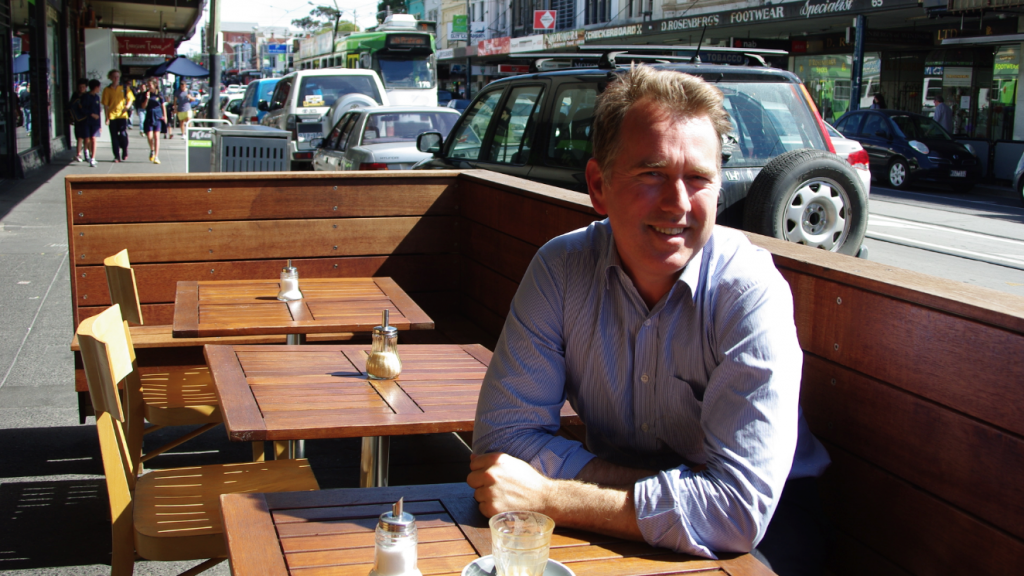
His first real LGBTI community debut was as part of a Liberal Party contingent in Pride March almost 10 years ago — he and his fellow marchers were booed. Those difficult inroads to the community were a positive gesture, but also one with strategic value — even in 2006 Newton-Brown also knew the LGBTI vote would be key to winning Prahran.
Newton-Brown acknowledges his status as an outsider in the LGBTI community.
“Part of the job of being a politician is being able to step into the shoes of every person in your community and represent them, and if you immerse yourself in their culture and their events, the more you learn about them the better you can represent them,” he says.
“Certainly, it can be uncomfortable to begin with.”
He’s no longer jeered at for participating in Pride March every year, but Newton-Brown still has his fair share of detractors. Comments from LGBTI people on social media often paint his interest in the community as cynical, and many see his progressive stances on LGBTI issues as incompatible with the conservatism of his party. His votes in support of the anti-discrimination rollbacks in particular have been a sticking point for many.
“I’m required as a party member to support party policy,” he says.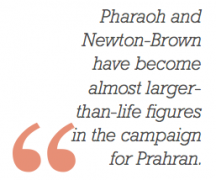
“Yes, members of parliament can cross the floor and get on the front page of the newspaper and be a hero for a cause… but the reality is, do you want a grandstanding gesture or do you want somebody who can actually achieve real change?”
Despite the focus on LGBTI issues in Prahran, those issues tend to be state-wide rather than local: marriage, adoption, criminal law reform. Though Commercial Rd was a thriving hub of gay nightlife even 10 years ago, there is only one gay bar left on the strip — it’s unclear whether it’s even still appropriate to call Prahran an LGBTI-centric electorate.
ABC News’ electoral commentator Antony Green argues it’s hard to pin any demographic to a seat like Prahran — many of its residents haven’t been there long and aren’t likely to be putting down roots in the area. All that can be said about the seat’s demographics is that they tend to be younger, higher-earning and transient.
With the closure of LGBTI venues everywhere it’s difficult to discern whether Prahran is becoming less queer, or whether it’s just a sign of a broader trend away from separate venues. Regardless, the major parties are taking the LGBTI community seriously in this election, and it’s hard to argue Prahran’s political importance isn’t a part of that.
It was telling when the Labor Party preselected a prominent young LGBTI rights advocate to run in Prahran. A significant majority of the local Labor branch members in the electorate had upported former Prahran MP Tony Lupton, but the party’s central committee used its votes to back Neil Pharaoh, then the national convenor of Rainbow Labor, ALP’s internal LGBTI group. Pharaoh has been heavily involved in a whole range of party policy and legislative reforms at the federal level, working largely behind the scenes. Notably, he got the ALP to endorse marriage equality at its national conference in 2011.
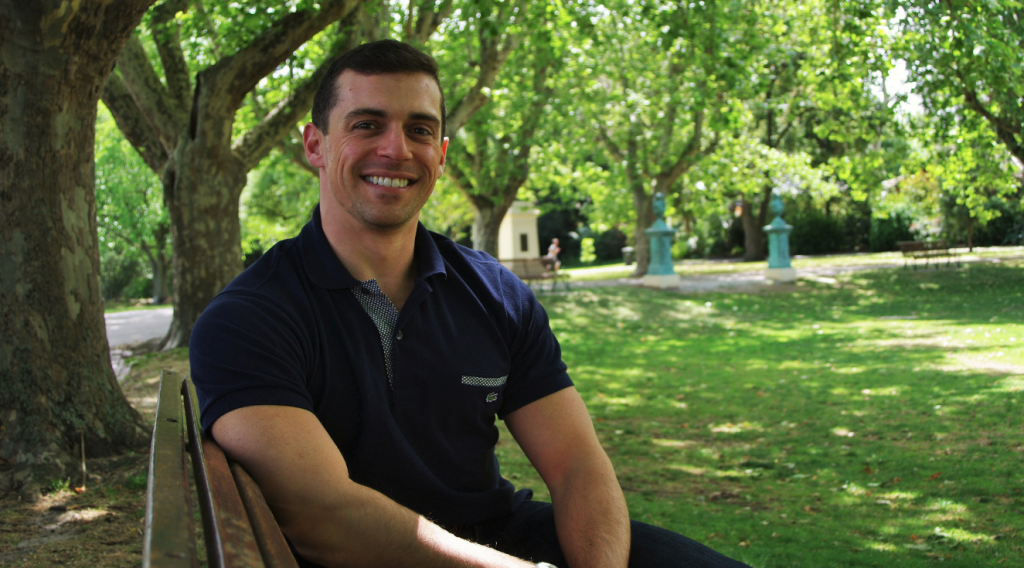
At just 30 years of age, Pharaoh is confident, ambitious and polished. It’s rare to hear someone in the LGBTI community mention him without also remarking on his looks. While eager to spruik his impressive LGBTI credentials, Pharaoh is also self-conscious about being “the gay candidate”. He admits that like a lot of gay men, he probably feels he has something to prove — when Pharaoh came out at 15 his mother kicked him out of home, though they’ve since patched things up.
“I’ve probably had that inherent drive since before I came out, but I’m not necessarily sure whether it accelerated when I did,” he says.
He drops a lot of big Labor names in conversation about his work behind the scenes on LGBTI issues — Tanya Plibersek, Penny Wong, even Julia Gillard — and talks about his involvement in a number of international, youth-focused philanthropic organisations. He’s a networker.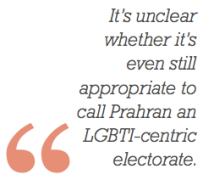
Pharaoh is also a committed reformist, who believes in making change within existing structures. He argues his decision to get into party politics was a pragmatic decision as much as one driven by civic duty.
His confidence falters when pressed about his status as Labor’s star gay candidate — he faces a lot of scrutiny from both conservatives in the electorate and the LGBTI community, and can get frustrated that so much of his work for the community has been behind the scenes.
“Being openly gay and standing for parliament does have limitations, on social life, on partying… you walk into venues and people know who you are,” he says.
“I think there’s added scrutiny. Being a single gay male does put additional focus on what you’re doing and why you’re doing it.”
While Pharaoh and Newton-Brown have become almost larger-than-life figures in the campaign for Prahran, Greens candidate Sam Hibbins is harder to read. He’s supported, of course, by the party machine and its impressive army of volunteers. Hibbins’ Commercial Rd campaign office is adorned with colourful charts and diagrams and maps, and young people in alternative clothing eat icy poles in the sweltering heat.
He’s straight, but unlike for Labor and the Liberals, where being a vocal advocate for LGBTI issues is still partly a novelty, these issues have long been a staple of the Greens’ state and federal election platforms. The only indication the party’s LGBTI focus has been at all ramped up in Prahran is Hibbins’ internationally-reported ad buy on gay hookup app Grindr.
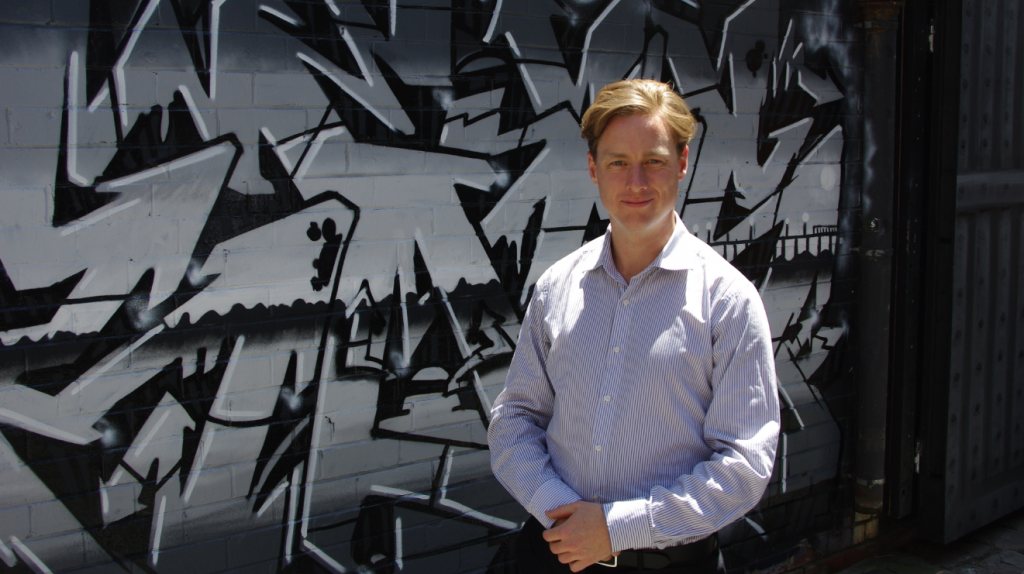
“When you have that ability to target a group or a demographic, which is cost-effective, then that’s what we’re going to take, and of course the media exposure was a bit of an added bonus,” he says.
Hibbins is across the basics of LGBTI issues, explaining the issue that drove him to the Greens was learning of Victorian Labor’s opposition to IVF access for lesbian women in the late 1990s, long before the state eventually reformed the law in 2008.
The Stonnington City councillor is a campaign veteran for the Greens, having previously run for the seat of Higgins in the last federal election, and the state seat of Malvern in 2010. His campaign has caught the eye of anyone paying attention to the Greens in this election, because it’s one only three lower house seats the party has any chance of winning, along with Melbourne and Richmond.
The Age’s state political editor Farrah Tomazin has been watching the seat with interest.
“It’s a high-stakes election — very few seats will separate the winner from the loser, and the fact that this is one of the few inner-city seats that the Liberals have, and therefore desperately want to retain,” she says.
“Rightly or wrongly it’s also been seen, traditionally, as a bit of an LGBTI epicentre in Melbourne. So I guess in that sense it’s no surprise that both parties are trying to court what I guess they call the ‘pink vote’.”
Tomazin acknowledges the balancing act required by many Liberal Party MPs, in a party of moderates like Newton-Brown and Health Minister David Davis, and conservatives like Attorney-General Robert Clark and hard-line right-wing MP Bernie Finn. The prominence of LGBTI issues in the campaign have even driven Premier Denis Napthine to engage with the community — Tomazin notes the rainbow sticker on Napthine’s Warrnambool electoral office.
“To his credit, [Clem] has done a fair bit of work for the LGBTI community, and that’s been I guess a strength,” she says.
“You’ve got a really fascinating battle, because you’ve got a moderate Liberal MP going head-to-head with an openly-gay Labor candidate… widely well-regarded, not just by constituents more broadly but by the LGBTI community for some of the reforms that he has managed to lobby behind the scenes on.”
Tomazin argues Hibbins’ prospects for winning the seat might be overstated, but if he manages to poll higher than Pharaoh in the primary vote, Labor’s preferences could get him in over Newton-Brown.
Regardless of the outcome in Prahran, it’s difficult to think of another major election in Australian history where the LGBTI community has stood to gain as much as they do come polling day in Victoria on November 29.
**This article was first published in the December edition of the Star Observer, which is available to read in digital flip-book format. To obtain a hard copy, click here to find out where you can grab one in Melbourne, Sydney, Brisbane, Adelaide, Canberra and select regional areas.






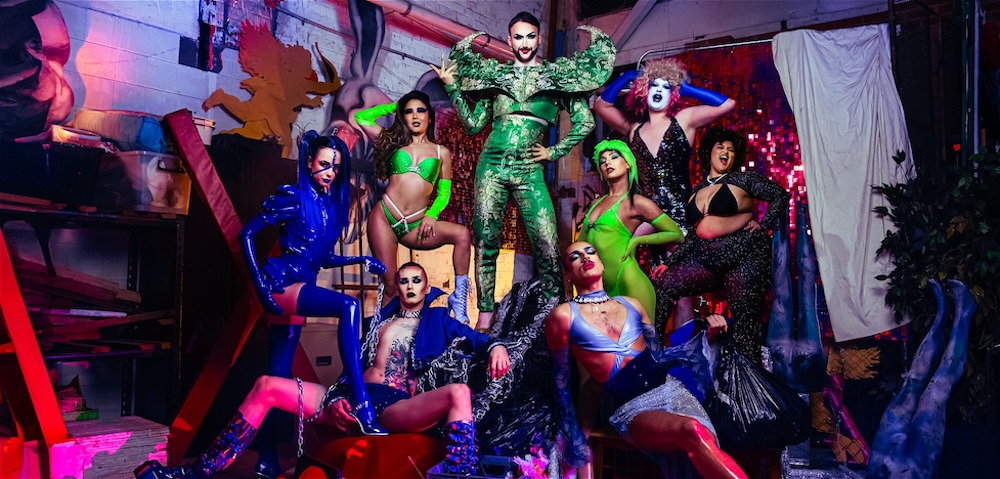



Vote 1 Sex Party!
There is only cute one and that is the GREEN!
Nail biting or pillow biting? Lol!